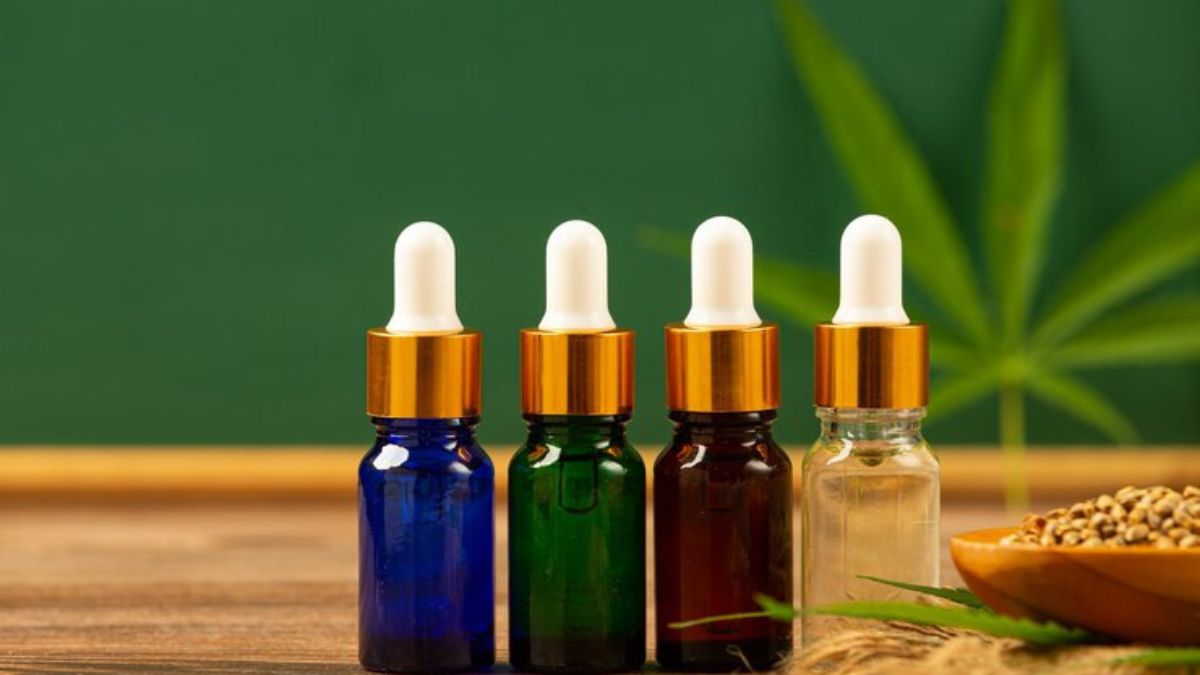As the landscape of cannabis products continues to evolve, two players have emerged in the spotlight: Hhc vs delta 8. Both compounds offer unique properties that pique curiosity among users seeking alternatives to traditional THC. But what exactly sets them apart? Understanding their differences and similarities can help you make informed choices about which one might be right for you. Whether you’re a seasoned cannabis connoisseur or just starting your journey, exploring HHC vs Delta 8 is sure to spark your interest in the world of cannabinoids. Let’s dive deeper into these fascinating substances and uncover what makes each one special.
The Chemical Structure and Effects of HHC and Delta 8
HHC, or hexahydrocannabinol, is a hydrogenated form of THC. Its chemical structure features two extra hydrogen atoms compared to delta-9 THC. This alteration may influence how it interacts with the body’s endocannabinoid system.
Delta 8 tetrahydrocannabinol has a similar structure but differs in its double bond placement. This slight variation can lead to different effects on users. Delta 8 tends to produce milder psychoactive effects than delta-9 THC while still offering potential therapeutic benefits.
Users often report that HHC provides an experience akin to traditional cannabis without overwhelming intensity. In contrast, delta 8 is celebrated for its relaxing properties and reduced anxiety levels.
The distinct structures of these compounds play a significant role in their unique effects, making them appealing choices for those exploring alternative cannabinoids.
Legality of HHC and Delta 8
The legal landscape for HHC and Delta 8 can be quite complex. Both compounds are derived from hemp, which was legalized under the Farm Bill of 2018. This law allows for the production and sale of hemp-derived cannabinoids as long as they contain less than 0.3% THC.
However, while Delta 8 gained popularity quickly, some states have moved to regulate or ban its use due to concerns about safety and efficacy. As a result, legality varies significantly by location.
HHC is relatively new on the scene and has not faced widespread scrutiny yet. Nonetheless, this doesn’t guarantee it will remain unregulated in every state.
Consumers should always check local laws before purchasing these products. It’s crucial to stay informed as regulations continue to evolve around both HHC and Delta 8.
Potential Benefits and Risks of Using HHC and Delta 8
HHC and Delta 8 are gaining popularity for their unique effects. Users often report a sense of relaxation and euphoria without the overwhelming high associated with traditional THC.
Many find that HHC offers a more balanced experience, potentially reducing anxiety while enhancing mood. This compound may also provide pain relief, making it appealing for those seeking therapeutic benefits.
Delta 8, on the other hand, is known for its milder psychoactive properties. Many users enjoy its ability to stimulate appetite and promote restful sleep.
However, caution is necessary. Both HHC and Delta 8 can cause side effects such as dry mouth or dizziness. For some individuals, these compounds might trigger anxiety rather than alleviate it.
It’s essential to approach each substance mindfully. The right choice depends on personal preferences and individual tolerance levels.
How to Choose Between HHC and Delta 8
Choosing between HHC and Delta 8 can seem daunting, but understanding your needs makes it easier. Consider what effects you’re seeking. HHC is known for a more potent high, while Delta 8 offers a milder experience.
Think about the purpose of your use as well. Are you looking for relaxation or relief from anxiety? Both cannabinoids have unique benefits that cater to different situations.
Next, evaluate the method of consumption. They come in various forms—vapes, edibles, tinctures—which may affect how quickly you feel their effects.
Factor in legality and availability in your area. Regulations can change frequently; knowing what’s accessible ensures a hassle-free experience.
Listen to your body’s response after trying either option. Personal experiences will guide future choices better than any article ever could.
Conclusion:
When navigating the world of cannabinoids, understanding HHC and Delta 8 is essential. Each compound offers unique experiences that cater to different preferences.
Exploring their differences can empower you to make informed choices about your wellness journey. The nuances in effects, legality, and potential benefits are crucial factors to consider.
As you weigh your options, remember that personal experience plays a significant role. What works wonders for one person might not resonate with another.
Experimentation within safe boundaries can lead to discovering what suits you best. As always, consult professionals if you’re uncertain about any aspect of cannabinoid use.
FAQ’s
Is HHC stronger than Delta 8?
The strength varies depending on individual tolerance and the specific product formulation. Many users report that HHC provides a more intense experience compared to Delta 8.
Can you use HHC and Delta 8 together?
Yes, some users combine both to enhance effects. However, it’s important to start with lower doses of each cannabinoid when trying this approach.
Are there any side effects associated with HHC or Delta 8?
Both compounds may cause side effects such as dry mouth, drowsiness, or anxiety in some individuals. It’s crucial to monitor your body’s response and adjust accordingly.











